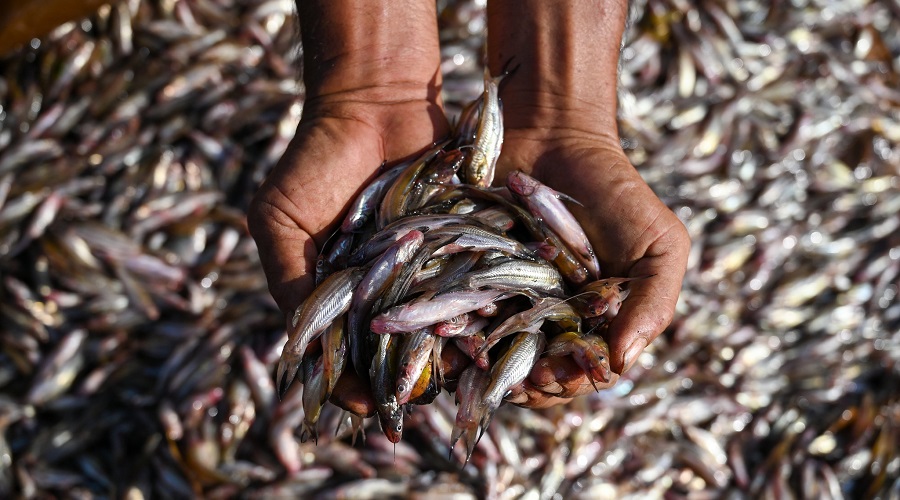
Photo by Neil Palmer (WorldFish), Flickr.
A treasure trove of vital nutritional data about fish species from all around the world is being made freely available – plugging a knowledge gap that will bolster efforts to tackle malnutrition.
The new initiative plans to make information about fish micronutrients accessible through FishBase and FAO’s International Network of Food Data Systems. It is being launched on June 23, 2021, by a team of researchers from the Ocean Frontier Institute, FishBase, WorldFish, the Lancaster Environment Centre, the Sea Around Us research unit at the University of British Columbia’s Institute for the Oceans and Fisheries, the Minderoo Foundation and other organizations.
Dubbed ‘FishNutrients,’ the tool incorporates empirical data for more than 500 species of fish from fresh and marine waters and modeled data for more than 5000 species.
The initiative is based on a marine finfish nutrient composition database that was used to build a predictive model, which was then applied to an analysis focused on how to harness fisheries to tackle micronutrient deficiencies around the world. This analysis was published in Nature in 2019 by Christina Hicks and her colleagues at the Lancaster Environment Centre and other institutions.
“The main point of making empirical and modeled values of nutrient composition readily available to researchers through FishBase is to have a clear understanding of the nutrient potential and opportunities from global fisheries catches,” said Deng Palomares, the Sea Around Us manager and one of the people behind the new initiative. “This understanding, in turn, should help guide more effective fisheries governance that takes into account the role that fish can play in addressing micronutrient deficiencies – or what we call ‘hidden hunger.’”
Previous research shows that despite fish being an essential component in the diet of more than four billion people around the world and the main source of some micronutrients for over a billion people in low-income countries, many of these countries export their highly nutritious fish and import lower-quality fish and fish products, thus creating a net loss of essential nutrients. In fact, up to 70 per cent of fish caught in the fishing zones along the coasts of African nations such as Namibia and Mauritania are often exported or monopolized by foreign nations.
This is in part due to a traditional view of fish perceived primarily as a source of protein, with less consideration given to the micronutrient composition of different fish species – a perception rooted in a lack of available nutritional knowledge. For example, very small species can often be very nutritious – but because they do not provide much protein, they are exported and processed into products such as fishmeal animal feeds.
“Making available scientific data that back the argument of the importance of fisheries in addressing global food security challenges has major policy and societal implications,” said Daniel Pauly, co-founder of FishBase and the Sea Around Us principal investigator. “FishBase is the ideal host for this type of information as it is already a data provider for national systems for the management of fisheries and aquaculture, and the monitoring of biodiversity.”
FishBase is an online encyclopedia of fish with crucial information on over 34,000 freshwater and marine species. Available in 14 languages, the database is visited by more than 700,000 people each month – among them fisheries biologists, managers, ecologists, and
sustainability scientists – and it is one the most cited fish/fisheries resource in the world.


